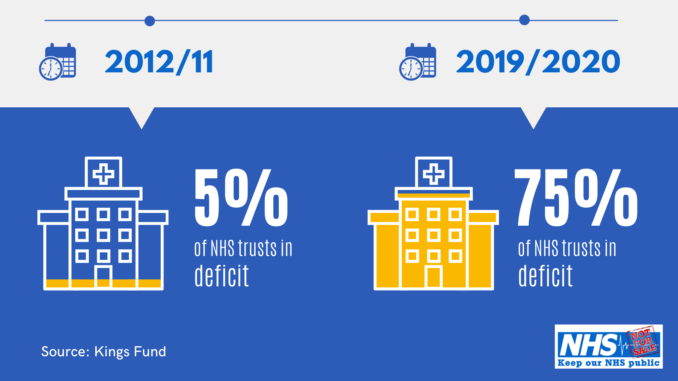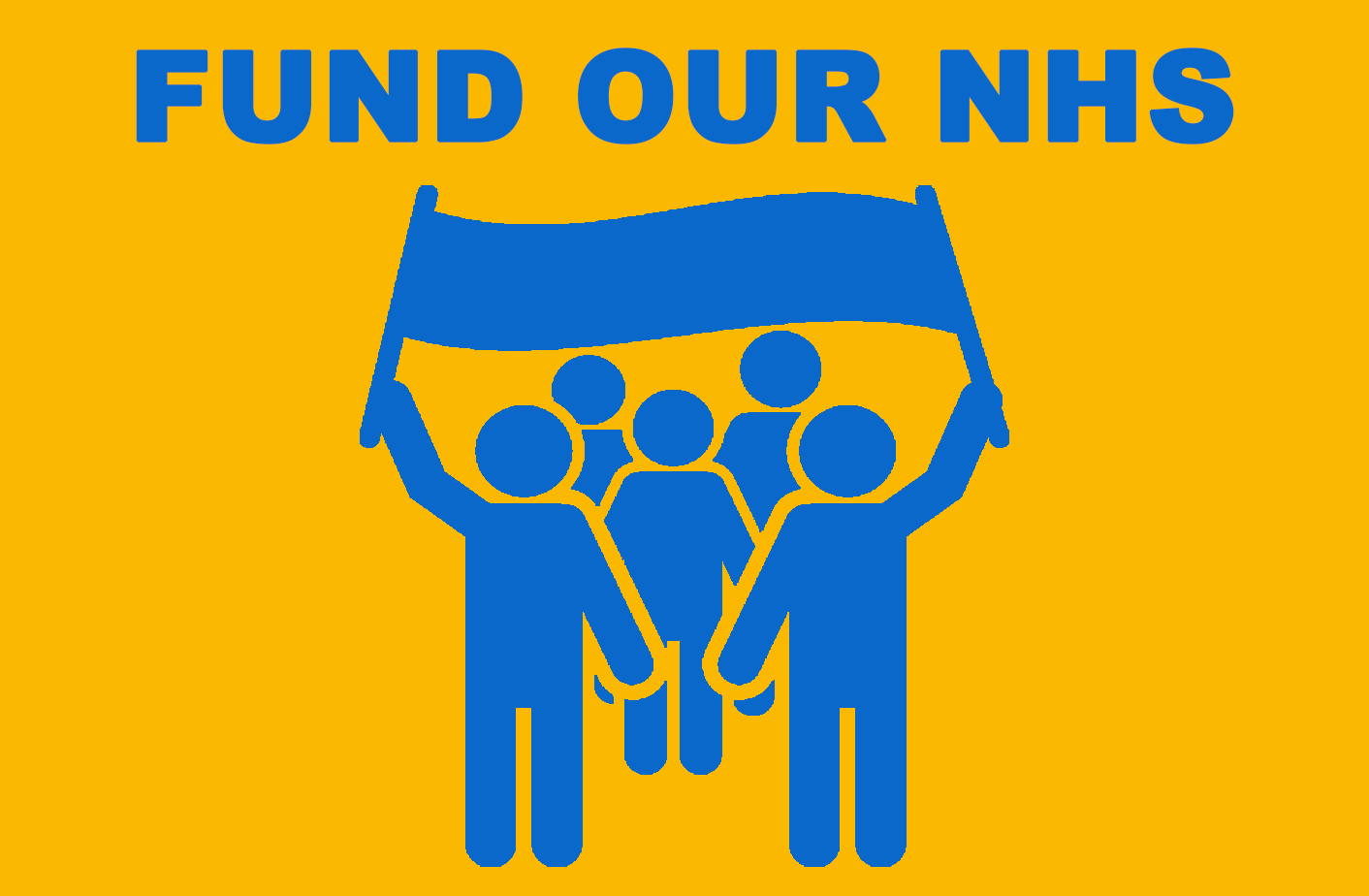While reducing spend on healthcare is not strictly speaking a form of privatisation, reducing spending below where it needs to be to meet demand is used to undermine public services. Though NHS services are frequently overwhelmed, whether by the Covid-19 pandemic or winter pressures, Keep Our NHS Public believes the NHS is not failing, it is being failed by Governments who refuse to fund it properly.
Ten years of austerity
Since the 2008 economic crash the Conservative Government, who have been in power since 2010, have been making the argument that the UK needs to ‘balance the books’ with austerity economics after spending billions of pounds bailing out failed banks.
This saw spending fall or flatline for the past decade. Budgets rose by just 1.4 per cent each year on average (adjusting for inflation) in the 10 years between 2009/10 to 2018/19, compared to the 3.7 per cent average rises since the NHS was established.
In this time spending on public health services by councils was also 8 per cent lower in 2017/18 compared to 2013/14 (on a like-for-like basis).
Impact on patients
The impact on NHS staff and patients has been catastrophic with A&E waiting times worsening significantly over the past decade. The Kings Fund reports The NHS has not met the four-hour waiting time standard at nationally since 2013/14, and it has been missed in every month since July 2015.
Mental health services have also been badly affected with waiting times for treatment so long that two-fifths of patients waiting for mental health treatment contact emergency or crisis services, with one-in-nine (11%) ending up in A&E, research by the Royal College of Psychiatrists has found.
Creating an opportunity for private companies
These long waiting times for services open up an opportunity for the private sector to offer alternative services to desperate patients, but also for the Government to outsource ‘failing’ services to organisations who claim (though not prove) they can do it better. For example £10bn has been offered to private hospitals to clear the waiting lists caused by loss of capacity during the Covid pandemic.
This is why cutting spending to the NHS is an issue for campaigners who oppose privatisation of our public services.
Next section: Rationing
Further reading
In this section Keep Our NHS Public has created a number of articles to help you explore the different ways the NHS is being privatised.
Read our definition of NHS privatisation.
You can find a summary of these on our page: How is the NHS being privatised?
Read in more detail about the different mechanisms being used to privatise the NHS:
- Private Finance Initiatives
- Health and Social Care Act 2012
- Cuts and underfunding
- Rationing
- Outsourcing staff
- Migrant charging
- Trade deals and data privacy
- Health and Care Bill 2021


